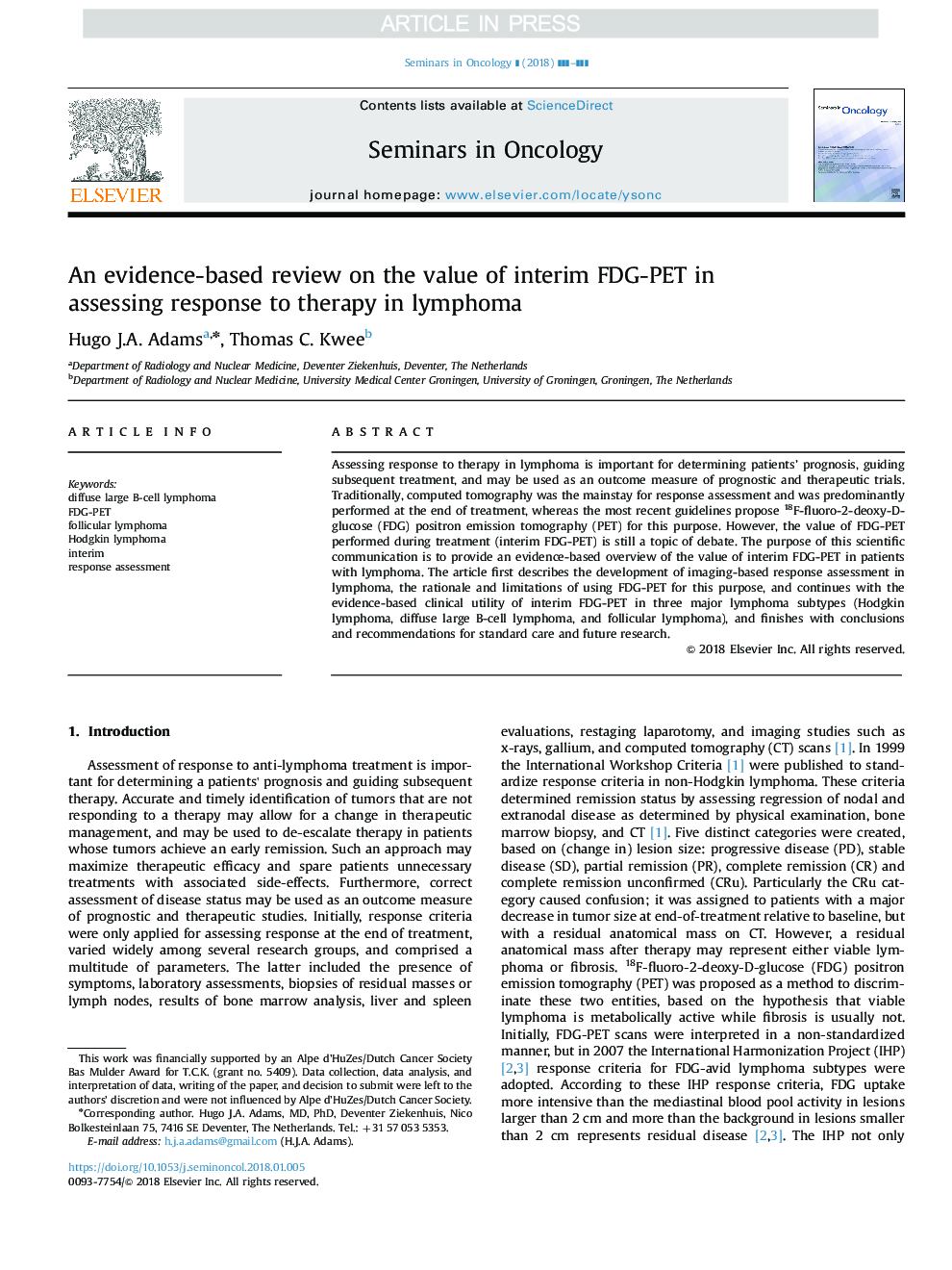| Article ID | Journal | Published Year | Pages | File Type |
|---|---|---|---|---|
| 8459705 | Seminars in Oncology | 2017 | 16 Pages |
Abstract
Assessing response to therapy in lymphoma is important for determining patients' prognosis, guiding subsequent treatment, and may be used as an outcome measure of prognostic and therapeutic trials. Traditionally, computed tomography was the mainstay for response assessment and was predominantly performed at the end of treatment, whereas the most recent guidelines propose 18F-fluoro-2-deoxy-D-glucose (FDG) positron emission tomography (PET) for this purpose. However, the value of FDG-PET performed during treatment (interim FDG-PET) is still a topic of debate. The purpose of this scientific communication is to provide an evidence-based overview of the value of interim FDG-PET in patients with lymphoma. The article first describes the development of imaging-based response assessment in lymphoma, the rationale and limitations of using FDG-PET for this purpose, and continues with the evidence-based clinical utility of interim FDG-PET in three major lymphoma subtypes (Hodgkin lymphoma, diffuse large B-cell lymphoma, and follicular lymphoma), and finishes with conclusions and recommendations for standard care and future research.
Keywords
Related Topics
Life Sciences
Biochemistry, Genetics and Molecular Biology
Cancer Research
Authors
Hugo J.A. Adams, Thomas C. Kwee,
